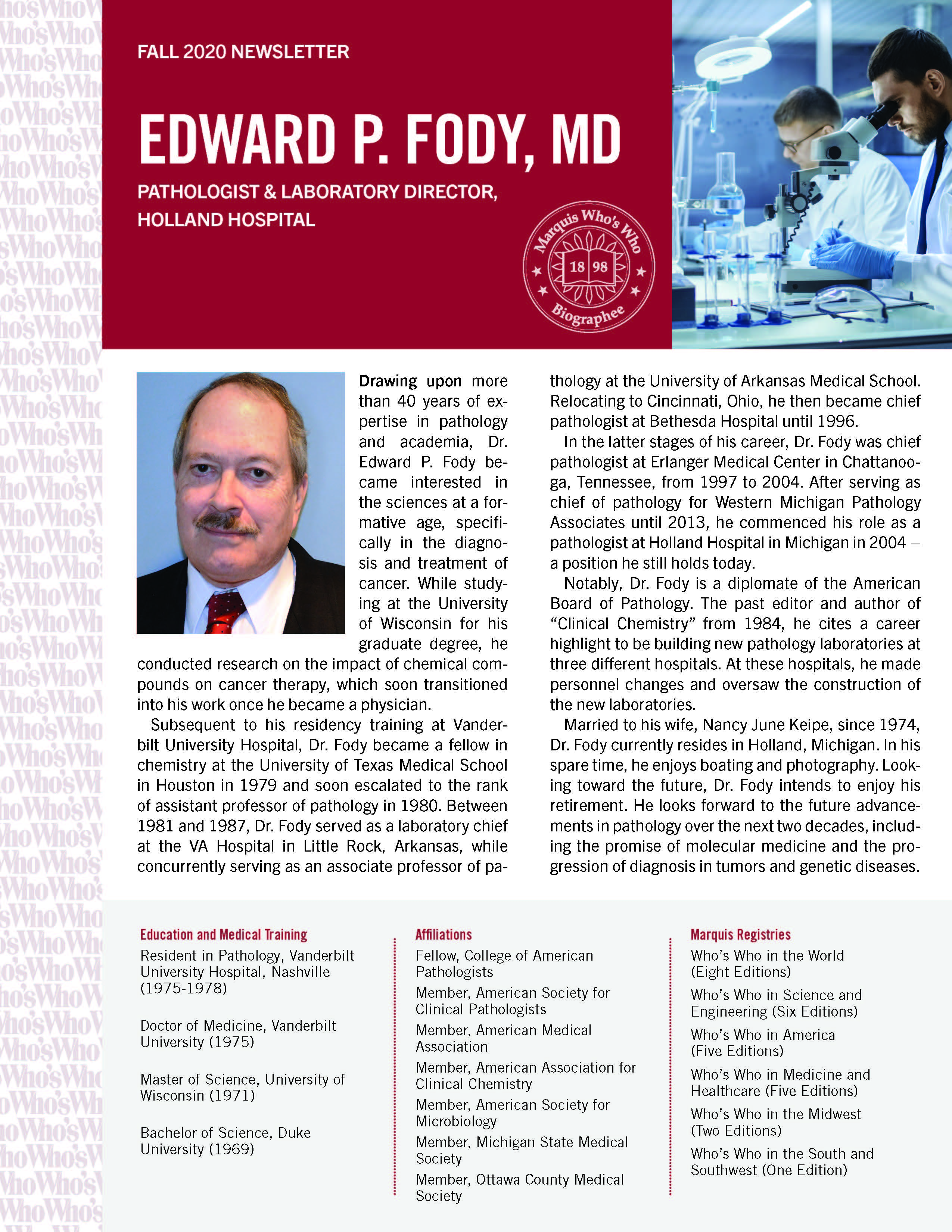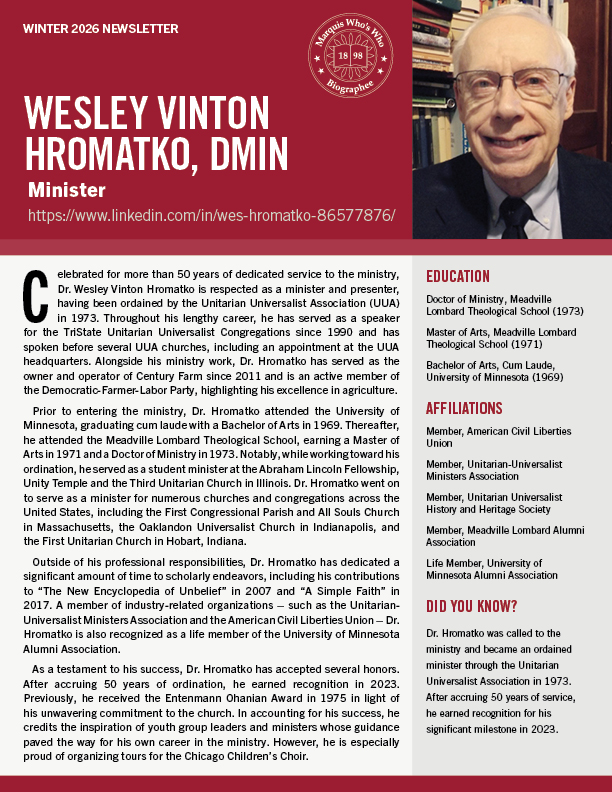
Drawing upon more than 40 years of expertise in pathology and academia, Dr. Edward P. Fody became interested in the sciences at a formative age, specifically in the diagnosis and treatment of cancer. While studying at the University of Wisconsin for his graduate degree, he conducted research on the impact of chemical compounds on cancer therapy, which soon transitioned into his work once he became a physician.
Subsequent to his residency training at Vanderbilt University Hospital, Dr. Fody became a fellow in chemistry at the University of Texas Medical School in Houston in 1979 and soon escalated to the rank of assistant professor of pathology in 1980. Between 1981 and 1987, Dr. Fody served as a laboratory chief at the VA Hospital in Little Rock, Arkansas, while concurrently serving as an associate professor of pathology at the University of Arkansas Medical School. Relocating to Cincinnati, Ohio, he then became chief pathologist at Bethesda Hospital until 1996.
In the latter stages of his career, Dr. Fody was chief pathologist at Erlanger Medical Center in Chattanooga, Tennessee, from 1997 to 2004. After serving as chief of pathology for Western Michigan Pathology Associates until 2013, he commenced his role as a pathologist at Holland Hospital in Michigan in 2004 – a position he still holds today.
Notably, Dr. Fody is a diplomate of the American Board of Pathology. The past editor and author of “Clinical Chemistry” from 1984, he cites a career highlight to be building new pathology laboratories at three different hospitals. At these hospitals, he made personnel changes and oversaw the construction of the new laboratories.
Married to his wife, Nancy June Keipe, since 1974, Dr. Fody currently resides in Holland, Michigan. In his spare time, he enjoys boating and photography. Looking toward the future, Dr. Fody intends to enjoy his retirement. He looks forward to the future advancements in pathology over the next two decades, including the promise of molecular medicine and the progression of diagnosis in tumors and genetic diseases.


